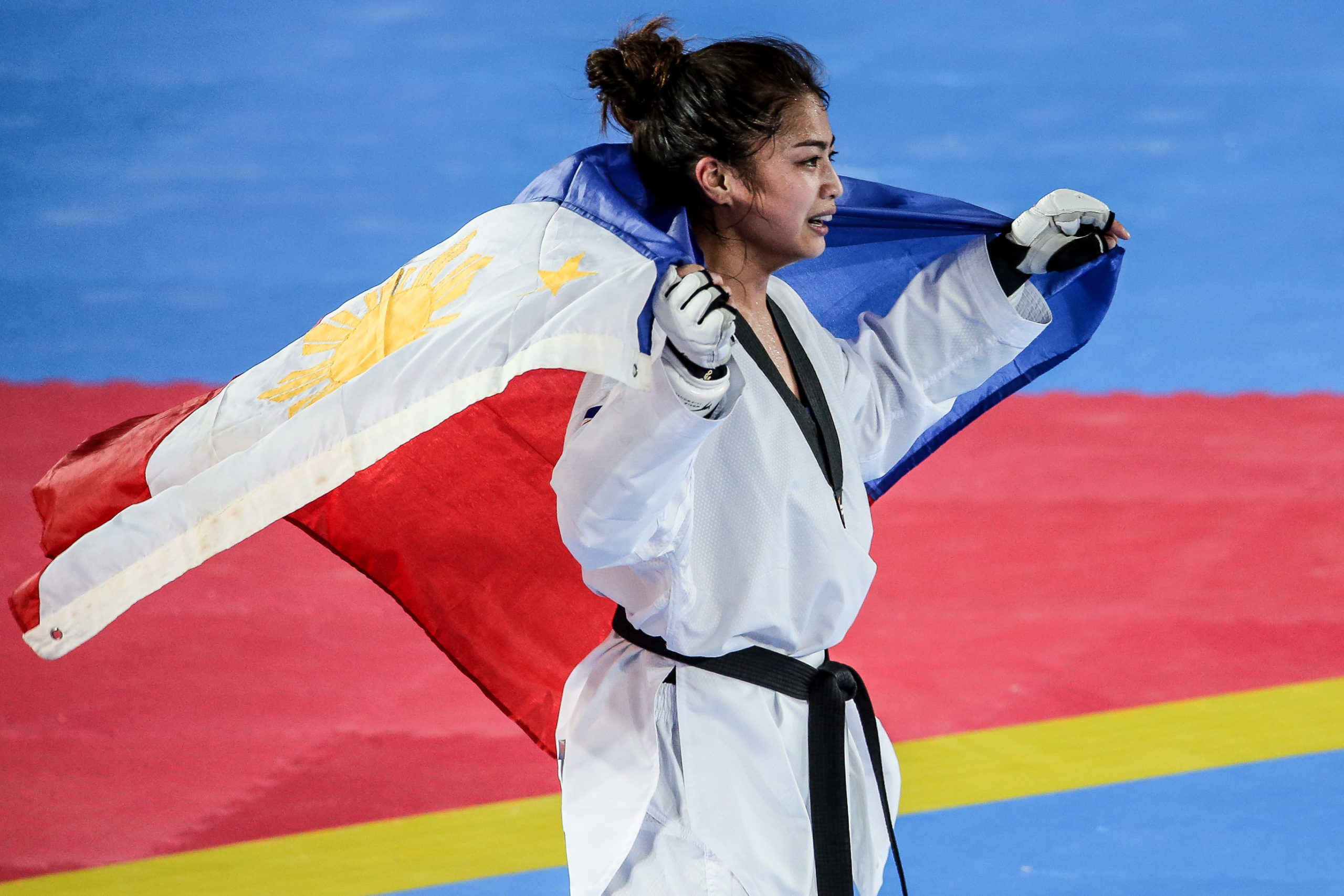Tokyo on her mind
Pauline Lopez could have packed her bags and left when the coronavirus pandemic and the preventive lockdown it created put her Olympic dreams in jeopardy.
Despite living alone, the 24-year-old national taekwondo athlete stayed anyway, ditching plans of joining her family in Los Angeles.
Article continues after this advertisement“I have to be ready for when it all resumes,” Lopez thought then. But as a community quarantine that started last March dragged on, the temptation to take a flight out of the country again teased her when restrictions were loosened last July 1.
Still, she made a decision to stay. Lopez enrolled for the semester to continue her BS psychology course at Ateneo de Manila University.
“It’s a sacrifice on my part, yes,” Lopez told the Inquirer. She now trains in an empty office provided by her manager, doing whatever she can in a limited setting to stay in shape. And her skills are still intact, as proven by a swashbuckling performance in a recent speed-kicking contest.
Article continues after this advertisementThe two-time Southeast Asian Games champion feels that she’s taking on a task much much bigger than herself: Bring in new hope for the sport that used to be front and center of the country’s quest for a first Olympic gold medal.
With weight regulated competitions, taekwondo, like boxing, had been relied on in the past to deliver for the country in international meets.
But that part of the sport’s history here has been relegated to yellowed newspaper clippings. In the past two Olympiads, the country has managed just one qualifier—and Kirstie Alora failed to make the quarterfinals in 2016.
The last time a taekwondo jin came tantalizingly close to an Olympic medal was through Antoinette Rivero, who made it to the semifinals in 2004 in Athens. But she lost the match and was relegated to the repechage bracket (for bronze), which she also dropped.
Six-time SEA Games champion Kitoy Cruz made the quarters in 2000 in Sydney, which saw the Philippines qualifying four fighters.
Now, Lopez leads a mix of veteran and new faces as a fresh batch of national jins hope to revive the sport’s Olympic hopes—even as they, too, have to keep their hopes up amid a crippling health crisis.
“Against something we can’t control, I have to be positive,” said Lopez, who also engages in meditation and breathing exercises apart from her makeshift taekwondo training. “Before, I used to go one day at a time, then one week at a time, and the one month at a time.”
Lopez and her fellow national jins, including fellow SEA Games standouts Alora, Samuel Morrison, Arven Alcantara, Kurt Bryan Barbosa and Veronica Garces, have their work cut out for them.
They have one crack at a Tokyo berth through a yet unscheduled Asian qualifier in Amman, Jordan.
Lopez’s path in her featherweight class has been weakened with top rivals from Korea and China already booking Olympic tickets via world rankings.
But that has not made her complacent at all and she still makes sure she trains at the highest possible level.
“It’s still very difficult because everyone is tough at that level,” she said, mentioning Thai and Iranian counterparts as her main worries.
Plus, getting into peak form has always been a problem with the disruption caused by the coronavirus pandemic.
“You just have to look after your strength and conditioning and with what’s happening the past few months, your mental preparation as well,” she said.
For her and the rest of her teammates, making it to the Olympics is a lot of work. And doing it in this extraordinary times makes it a lot tougher.
